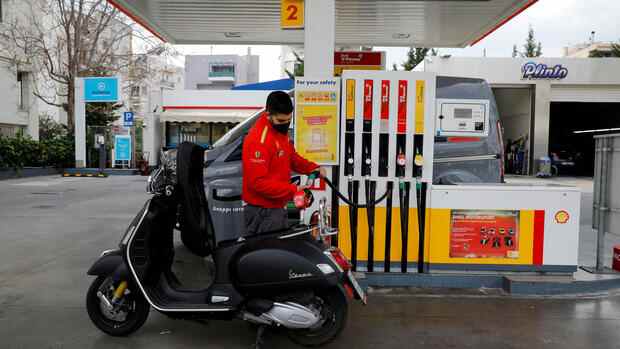For many citizens, the billions in profits of some energy companies are difficult to understand.
(Photo: REUTERS)
It was a moment that made me suspicious. Economics Minister Robert Habeck (Greens) expressly thanked the companies that voluntarily forego the gas surcharge on Monday. So far, two big names are known: the energy company RWE and the German subsidiary of the oil giant Shell. In these cases, the waiver should really be a matter of course.
RWE boss Markus Krebber had recently repeatedly emphasized that the company was financially stable and could cover the additional costs of procuring replacement Russian gas out of its own pocket.
In view of the profits in the second quarter alone and compared to the situation of many other energy companies in this country (EnBW, Uniper, …), stable positioning is still expressed cautiously. Shell’s profits have also been record-breaking for the past few months.
There could be two reasons why such corporations refrain from passing on their additional costs to consumers elsewhere: Firstly, it helps the tarnished image and secondly, an attempt is made to put a stop to a completely different debate.
Top jobs of the day
Find the best jobs now and
be notified by email.
Because the same companies that make even more profit than before in times of war, crisis and shortages have been confronted with demands for a tax on excess profits for a few months.
An excess profit tax should at least be discussed
Now they are paying the high gas prices – for which they are admittedly not responsible – voluntarily out of their own pockets. That’s almost like a levy, you might think. Nobody knows how big this supposedly selfless sacrifice is.
RWE says of itself that it does not obtain a large proportion of its gas imports from Russia anyway. And even Shell does not reveal how high the additional costs would be, which, from a purely legal point of view, could be recovered via the levy. A rogue who scents a certain calculation here.
Countries like Italy, Greece and Great Britain have long since introduced a form of tax on excess profits, and the EU Commission gave the go-ahead for this in the spring.
Federal Finance Minister Christian Lindner (FDP) and Chancellor Olaf Scholz (SPD) have so far stubbornly rejected the instrument. After all, such a tax is “technically very challenging”.
Nobody claims that such an excess profit tax would be easy to implement. However, that is not the gas levy either. But lo and behold – it works. Therefore, at least a discussion about such a tax should be conducted.
Maybe some motivation will help. A new study by the Tax Justice Network for the Rosa Luxemburg Foundation, which is close to the left, now comes to an interesting conclusion: Depending on the structure and tax rate, taxing the oil, gas and electricity companies could bring the state “revenues of around 30 to 100 billion euros generate per year”.
More: Shell waives money from planned gas surcharge
